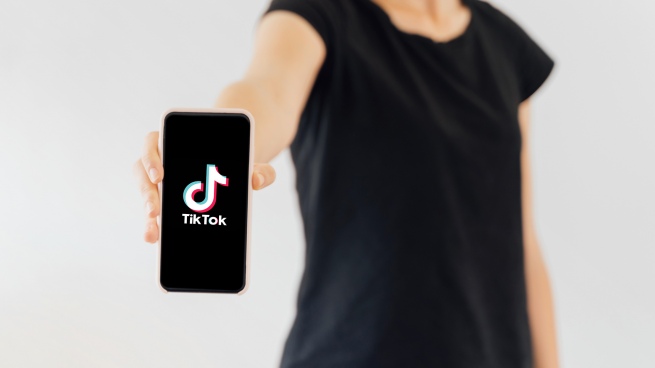By Irina Sternik, for Tiempo Argentino
Social networks are part of our life. We live with –and often for– them. But despite the fact that we tend to naturalize them, there is nothing casual about them. Behind there are technological giants and battles to capture the time of millions of users. The current fight between TikTok (China) and Mark Zuckerberg’s conglomerate (United States), is one of the mainand in a very short time the Asian turned the table.
Less than a year ago, the group of companies known as Facebook (which includes Instagram and WhatsApp, among others) changed its name to Meta. The reason, go into the metaverse and set a new course for innovation. But she is no longer the only leader. The question seems to focus on which one is better able to interpret which audience to target, which one offers the simplest and most direct tools, and which one is better adapted to the contexts.
Yes in 2020 TikTok was the most demanded application, with 2 billion downloads, and in 2021 it continued as a revelation, this year the platform was consolidated, tripling the attention we devote to it. And not just the youngest. According to Kantar’s study The Power of TikTok, 67% of global users are over 25 years old. Just two years ago the equation was reversed. And more and more creators between 45 and 59 years old are joining, or even those known as “grandinfluencers” who range from 65 years and older. Some become “stars,” like Belito, an Argentine who died in May at the age of 87.
The fight between giants has its geopolitical side: the presence of each application in different parts of the world is also the presence and installation of its country of origin. And a huge flow of data. In that sense, the United States sees how China advances without obstacles capturing Western audiences. In the North American country, TikTok users spend an average of 29 hours a month, against 16 on Facebook and 8 on Instagram. Globally, the amount of time spent on the Chinese-based app is staggering: the average user spends 95 minutes a day, according to Sensor Tower’s analysis of the last quarter. That’s more than four times the average length of Snapchat (21 minutes), more than three times that of Twitter (29 minutes), and almost double that of Facebook (49 minutes) and Instagram (51 minutes). Of course, in these cases both are from Zuckerberg. YouTube comes in second with 74 minutes per day.
How did TikTok manage to dominate the planet’s digital scene in such a short time? On the one hand, with the power of viralization: in 2019 it was the most cited social network on Twitter, Facebook and Instagram. Also with the permanence in front of the screen: studies indicate that an average user spends two whole days a month inside the app. In addition, it has an addictive algorithm: the scrolldown does not stop, the creators have a lot of engagement (emotional connection) and the artificial intelligence to understand what each user is going to like scares how accurate it is.
Algorithm, divine treasure
Melisa Avolio, journalist and specialist in social networks, underlines two advantages with which TikTok runs: “it appeared at a time when the networks were already consolidated, and it hit the mark with the spontaneous short videos that do not require an additional program to be edited”. That void was taken over by TikTok, which capitalized on what the other platforms did not have.
But in addition, indicates Avolio, TikTok focused on curated content, which is positioned with an algorithm that knows what its users want to see. “Facebook and Instagram were directed at their friends or followers. Instead TikTok went straight to what people really wanted to see, understanding what their interest is, their search within the application, and that makes it a place that works like a vicious and addictive circle from which one can not get out. Avolio clarifies something that should never be forgotten: the algorithm is not natural. The company decides what to show: “When we talk about the ‘Tiktok algorithm’, we talk about decisions made by humans. And in general, the content that reaches viralization or trend is usually entertainment, to the detriment of that which is more critical/informative”.
Tik Tok became the main engine of cultural phenomena. Everything is dancing, entertainment and challenges that go beyond the cell phone screen. Last month dozens of teenagers went viral by dressing up in suits to see the latest Minions movie and something as small as a video changed a movie premiere around the world.
Juan Marenco, CEO of the Be-Influencers agencycoincides with that TikTok won the battle of this time for its algorithm and for the addiction it produces: “it is a permanent zapping that generates an attraction because every two, three or four videos there is one that interests you a lot and that you share. Its success also lies in the fact that it does only one thing: it is a simple format, easy to use, it does not require great things and that makes it a winner. In addition, it spread in a social sector that Instagram had never been able to enter, which generates a much larger user base.”
That appears as another key to its success: it is not aspirational. Everyone, adults, kids, from there or from here, has a place that can grow in visualizations. The only thing it requires, Marenco points out, is to understand its language, its format and its form: “its editor is simple, but it takes time to learn how to use it and, possibly, much of the time and attention it has from its users. And that doesn’t say much: the amount of time they spend creating content. They force you to stay in the app, to investigate or understand what works and what doesn’t”.

For Mauricio Cabrera, media and network analyst, head of StoryBaker, the secret is that it does not focus on the social but on interests: “The TikTok algorithm seeks to detect what content will be of interest to users, regardless of whether this content was generated, commented on or shared by a person already on that network. This is a radical change, because we are no longer talking about connecting with each other, about a social network, but about connecting with what the user is looking for and didn’t even know what they were looking for”. For him, the difference between generating content on TikTok or Instagram is becoming more and more subtle: “I’m not talking about something positive. On Instagram there is still a greater propensity for the aesthetic and the motivational or aspirational. TikTok has a small big difference: it democratizes the possibility of shining as a content creator, unlike Instagram, which was to show the idealized side of life.”
In the Chinese social network – he highlights – there is no aesthetic factor that gives it relevance: “there is no age discriminating element and that makes, in perspective, the possibility of building a community within it over Instagram seem much more democratic”.
Beyond the battle for attention, especially in young people, Facebook continues to lead a very powerful segment: news. According to Reuters, Zuckerberg’s social network is a source of news for half of the public, followed by YouTube, Whatsapp, Instagram, Twitter, Messenger and only later TikTok. The news may be the next battle for attention. It will be a matter of time to see if Facebook really ceases to be a protagonist or will continue to be the preferred channel to spread the daily alarmist headlines.
The creators
mark zuckerberg: He is the creator of ByteDance, the Chinese company that devised TikTok. First it was Douyin in 2016: the app had managed to have 100 million Chinese users in a year, with more than a billion videos viewed every day. In 2017 he does TikTok for the West, and Musica.ly. In 2018 they unify them and grow in an extraordinary way. The firm is valued at $250 billion.
Zhang Yiming: The American programmer and businessman created Facebook in 2004, when he was 20 years old. Fourteen years later he was the youngest to appear on Forbes magazine’s list of billionaires, with a fortune of 73.2 billion dollars. After buying Instagram and WhatsApp, in 2021 he launched Meta. The latest is the announcement of a virtual reality headset for October.
















